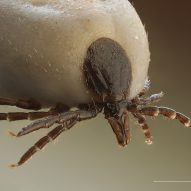My dog was diagnosed with laryngeal paralysis | Dr. Justine Lee, DACVECC, DABT, Board-certified Veterinary Specialist
Was your dog just diagnosed with laryngeal paralysis? Here’s what you need to know! The larynx, otherwise known as the voice box, is made up of cartilage and works by allowing air to flow directly into the lungs. Muscles, nerves, and blood vessels surround the larynx. During breathing, the two halves of the cartilage should abduct (or pull open) to allow a large opening into the trachea to allow air to enter into the lungs. During swallowing, special tissue (e.g., the epiglottis) covers...
Read MoreFood bloat in dogs | Dr. Justine Lee, DACVECC, DABT, Board-certified Veterinary Specialist
In today’s blog, I review food bloat – when a dog eats so much and their stomach is full of food. Is this life-threatening? Do you have to take your dog to the veterinarian if your dog has food bloat? Food bloat, also commonly called “bloat” or “gluttony bloat,” occurs when a dog (or rarely, a cat) gorges on a massive amount of food, resulting in too much air and food in the stomach. Semantically, food bloat is similar to “gastric dilatation” as it means the stomach is...
Read MoreCongestive heart failure in dogs | Dr. Justine Lee, DACVECC, DABT, Board-Certified Veterinary Specialist
Congestive heart failure (often abbreviated CHF) is due to failure of the heart, a pump, to push blood into the tissues, resulting in secondary backup or pooling of blood into the lungs (pulmonary edema), into the chest cavity (pleural effusion), or into the abdominal cavity (ascites). CHF can occur from the following causes: • A congenital defect (e.g., inherited at birth) of the heart (such as ventricular septal defect, patent ductus arteriosis, subaortic steonosis, etc.) • Chronic...
Read MoreI’m pregnant – what do I need to know about toxoplasmosis | Dr. Justine Lee, DACVECC, DABT, Board-certified Veterinary Specialist
Toxoplasmosis: I’m pregnant. Do I have to worry about toxoplasmosis? In today’s blog, Dr. Justine Lee reviews toxoplasma. As a veterinarian, this freaked me out as a pregnant mother too! Toxoplasma – often called “toxo” – is a type of parasite that cats can carry within their body. While some cats can become sick from toxoplasmosis, some cats are never affected from toxoplasma; that said, they can become carriers of the infection (e.g., carry it within their body without...
Read More5 types of personalities in cats | Dr. Justine Lee, DACVECC, DABT, Board-certified veterinary specialist
A recent study conducted by researchers in South Australia and New Zealand found that cats have 5 unique types of personality types: neuroticism extraversion dominance impulsiveness agreeableness. In their study called “‘The ‘Feline Five’: An exploration of personality in pet cats (Felis catus)“, Litchfield et al out of University of South Australia and University of Wellington in New Zealand wanted to know about typical personalities of domesticated cats. The...
Read MoreLyme disease in dogs: Part II | Dr. Justine Lee, DVM, DACVECC, DABT, Board-Certified Veterinary Specialist
Last week, we talked about what Lyme disease is and how to prevent it. Today, we’re going to focus on how to treat it and diagnose it accurately. Is Lyme disease treatable? If your dog tests positive for Lyme disease – or more importantly – is clinically sick from Lyme disease, then treatment includes an antibiotic called doxycycline (which often needs to be given for 4 weeks). While this is a relatively “safe” antibiotic, doxycycline can cause vomiting, esophagitis or reflux,...
Read More






Recent Comments